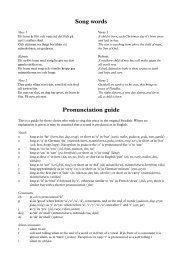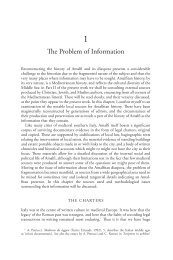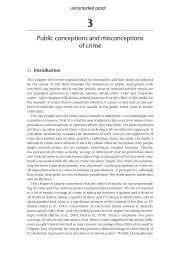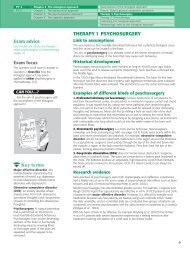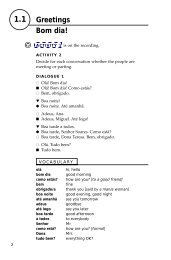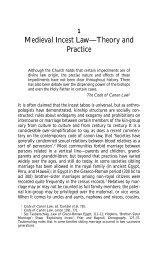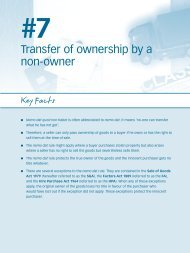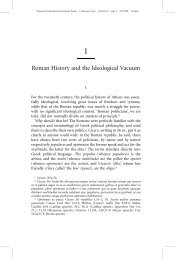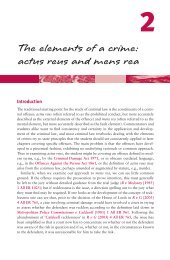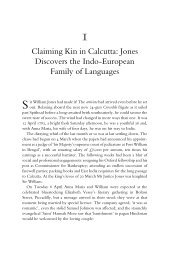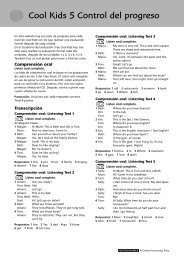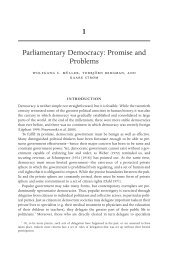Chapter 11 The Tort of Negligence - OED-update - Oxford University ...
Chapter 11 The Tort of Negligence - OED-update - Oxford University ...
Chapter 11 The Tort of Negligence - OED-update - Oxford University ...
You also want an ePaper? Increase the reach of your titles
YUMPU automatically turns print PDFs into web optimized ePapers that Google loves.
<strong>Chapter</strong> <strong>11</strong> <strong>The</strong> <strong>Tort</strong> <strong>of</strong> <strong>Negligence</strong> 369<br />
the claimant having to prove that the defendant had breached his duty <strong>of</strong> care, the defendant<br />
will have to prove, on the balance <strong>of</strong> probabilities, he has not breached his duty <strong>of</strong> care.<br />
<strong>The</strong> presumption that the accident was caused by the defendant’s negligence applies<br />
when the following criteria are present:<br />
• <strong>The</strong> defendant was in control <strong>of</strong> the thing or situation that caused the damage.<br />
• <strong>The</strong> damage would not normally have occurred without carelessness by some person.<br />
• <strong>The</strong> exact cause <strong>of</strong> the accident cannot be determined.<br />
As the principle relies on the absence <strong>of</strong> knowledge <strong>of</strong> the exact facts, it will not apply if the<br />
facts <strong>of</strong> what actually happened are known or can be discovered.<br />
Byrne v Boadle (1863)<br />
Facts: A barrel <strong>of</strong> flour fell from the defendant’s warehouse and injured the claimant who was<br />
passing by. No explanation <strong>of</strong> how the barrel fell could be established.<br />
Decision: This was a case <strong>of</strong> ‘res ipsa loquitor’. <strong>The</strong> burden <strong>of</strong> pro<strong>of</strong> was on the defendant to<br />
show he had not broken his duty <strong>of</strong> care. <strong>The</strong> defendant could not do this and, therefore, the<br />
claimant succeeded in his action for negligence.<br />
Ward v Tesco Stores (1976)<br />
Facts: <strong>The</strong> claimant slipped on some yoghurt spilled on the floor <strong>of</strong> the defendants’ supermarket.<br />
<strong>The</strong> defendants would have breached their duty <strong>of</strong> care if steps had not been taken within<br />
a reasonable time to clear it away. <strong>The</strong> claimant could not prove how long the yoghurt had been<br />
on the floor, but in the absence <strong>of</strong> any explanation it was likely the defendants were at fault.<br />
Decision: <strong>The</strong> defendants were liable, on the basis that the claimant had slipped and they<br />
could not positively establish that they had not been negligent.<br />
Key Concept Where the evidence clearly suggests that the defendant must have<br />
breached his duty <strong>of</strong> care even though the claimant cannot prove exactly how the injury<br />
was caused, the burden <strong>of</strong> pro<strong>of</strong> is reversed. <strong>The</strong> defendant will have to prove, on the<br />
balance <strong>of</strong> probabilities, he has not breached his duty <strong>of</strong> care.




